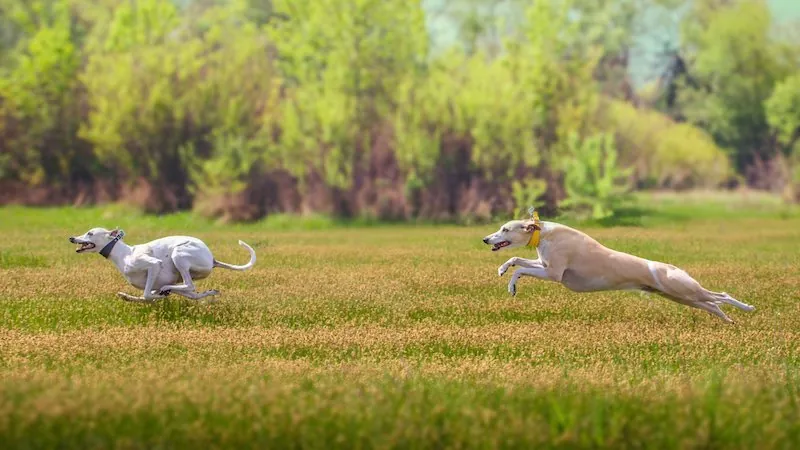
Groundbreaking Genome Analysis of Whippet Sighthound Sets a Benchmark for Biodiversity Preservation
2024-10-27
Author: Mei
Groundbreaking Genome Analysis of Whippet Sighthound
In an age where biodiversity is rapidly declining, a landmark initiative has emerged from Germany that can potentially revolutionize conservation efforts worldwide. Researchers from the Department of Human Genetics at the Bioscientia Institute for Medical Diagnostics GmbH and the LOEWE Centre for Translational Biodiversity Genomics (LOEWE-TBG) have successfully sequenced and analyzed the complete genome of a Whippet sighthound in under a week. The remarkable findings have been shared in the scientific journal "GigaByte."
Cutting-Edge Technology and Accuracy
Utilizing cutting-edge technology known as 'long-read' sequencing, the team achieved unprecedented accuracy in analyzing the Whippet genome. This breed, renowned for its incredible speed, served not just as a subject of study but as a symbol of the urgent need to combat species extinction in our rapidly changing world.
Significant Leap Forward in Genetic Research
According to Prof. Dr. Hanno Bolz, Head of Human Genetics at Bioscientia, "Our ability to extract and analyze complete genomic data within days—not months—marks a significant leap forward in the realm of genetic research." The collaboration between human geneticists and biodiversity scientists exemplifies an innovative approach to confronting ecological challenges.
Understanding Evolutionary Adaptations
The urgency of rapid genomic analyses cannot be overstated, especially as countless species are pushed to the brink of extinction. Dr. Carola Greve of the LOEWE Centre TBG emphasizes, "This initiative allows us to furnish critical genetic insights into endangered species. Understanding their evolutionary adaptations is key to formulating effective conservation strategies." Following the Whippet project, the researchers are set to publish findings on the endangered garden dormouse, with additional sequencing projects already in the pipeline.
A Team of Experts and Broader Impact
At the Bioscientia Institute, a dedicated team of approximately 100 experts processes thousands of genomes and protein-coding regions each year. This endeavor aids in identifying the genetic roots of rare diseases affecting individuals globally. Notably, the longitudinal genome sequencing methods pioneered through the Whippet study are being adapted for human diagnostics, promising to enhance the accuracy and efficacy of disease identification and treatment.
The Role of LOEWE Centre TBG
The LOEWE Centre TBG plays a crucial role in this initiative, sequencing the DNA of various organisms—from microbes to whales. This genomic information sheds light on the evolutionary history and ecological roles of numerous endangered plants and animals, providing vital insights for both fundamental and applied research, including effective conservation management strategies.
Conclusion: A Promise for Biodiversity Conservation
As the planet faces an unprecedented biodiversity crisis, these advanced genomic techniques hold the promise of expedient and impactful responses, enabling scientists and conservationists to work hand in hand to preserve our precious natural heritage. Stay tuned as we watch this groundbreaking fusion of genetics and conservation unfold!


 Brasil (PT)
Brasil (PT)
 Canada (EN)
Canada (EN)
 Chile (ES)
Chile (ES)
 España (ES)
España (ES)
 France (FR)
France (FR)
 Hong Kong (EN)
Hong Kong (EN)
 Italia (IT)
Italia (IT)
 日本 (JA)
日本 (JA)
 Magyarország (HU)
Magyarország (HU)
 Norge (NO)
Norge (NO)
 Polska (PL)
Polska (PL)
 Schweiz (DE)
Schweiz (DE)
 Singapore (EN)
Singapore (EN)
 Sverige (SV)
Sverige (SV)
 Suomi (FI)
Suomi (FI)
 Türkiye (TR)
Türkiye (TR)